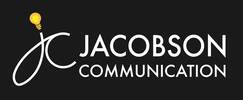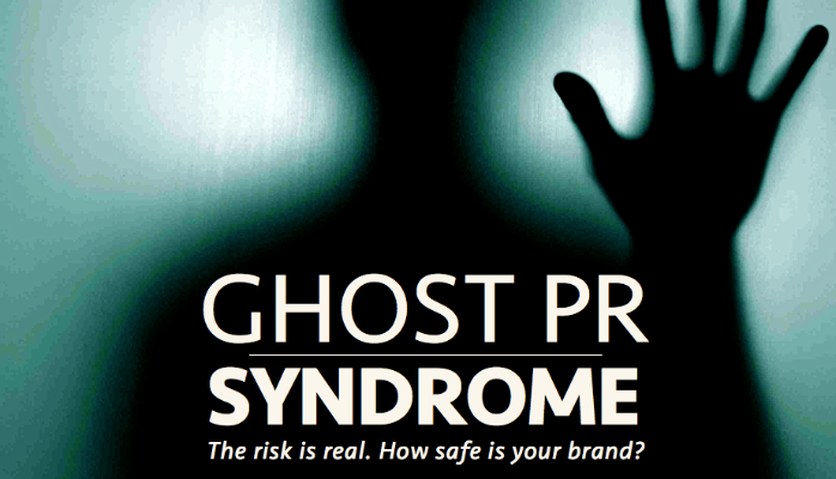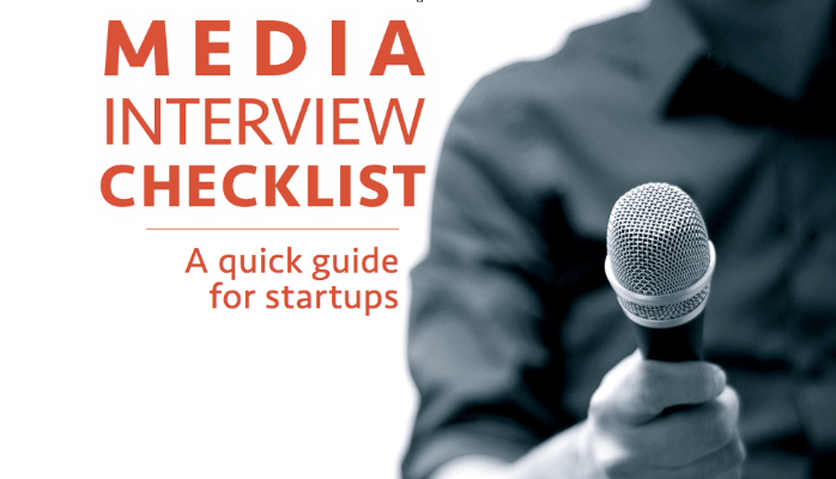|
1. The best PR firms are really big.
Choosing a big PR firm can be a dangerous choice for a startup for three reasons: 1. Big PR firms are expensive for cost-conscious startups. 2. Big PR firms are focused on their big, name-brand clients, because they look good, and they pay well. 3. Most big PR firms don’t specialize in the nuances of startups. While they may have fancy reports and a fleet of underlings to meet with you regularly, big PR firms don’t usually understand the specific needs of budding entrepreneurship associated with startups. You’re better off looking for PR firms that specialize in, and have results for companies of a similar size and focus to yours. 2. You Don’t Care About Your Appearance:
Relying on old PR placements shows that staying relevant isn’t important to your brand. When media placements for a brand are more than a month or two old, it’s the same as wearing dirty laundry to work; it looks bad, people notice, and no one will tell you. 3. You’re Wasting SEO Opportunities: One of the number one ways people research new products is online, and media placements are a great way to drive SEO for your brand. If you’re not actively getting your share of media placements, your brand is missing some meaningful web-traffic. 4. You’re crippling your sales team: Sure great salespeople can sell “anything” but if you have Ghost PR Syndrome, your forcing your team to trot out the same horse time, after time, trying to sell to leads, who are becoming more and more familiar with the competition. Current media placements can go a long way to lending credibility to your product and that can speed-up and unburden your sales team. 5. You’re Isolating Your Customers: Lack of PR makes current customers less confident in the best of times and more skeptical if they have a problem. Hanging out with the “cool kids” is still a thing. Even if you have won customers and they’ve been with you for a long time, they may decide to go with the competition if the news is raving about how wonderful a similar product is. For customers who’ve had a problem, (as long as that problem is handled in a favorable way), positive media stories can help them have faith in your company while their problem is sorted out, leading them to believe that their issue is isolated, and not the tip of the iceberg of doom for your brand. Is Ghost PR Syndrome Preventable? Yes. You need to make PR a priority for your brand. Work with a firm that understands your desire to stay relevant in your market. Talk with a number of firms who represent brands of a similar size and industry to yours. Talk with fellow founders, executives, and colleagues and ask who they recommend. You can overcome Ghost PR Syndrome and get your brand back on track. The Bottom Line: If you want your company to stand out, attract new customers, and stay relevant, active PR should be one of the most-valuable, most-used tools in your marketing toolbox. Have you ever had a PR campaign that just didn't work? Are you planning a new campaign? Here's the top 8 reasons PR campaigns fail and what you should avoid.
1. You're Starting Too Late Do you have a story that has to "go live" this week? Next week? You're too late. Sure, you can try and see what happens, but you need to have sent out your stories at least two to four weeks in advance. Looking to get coverage in a print magazine, try three months or more in advance. Looking to get your new product/service on a major TV show? That could easily take 6 months of hard work and dedication. Do you have a holiday campaign coming up? Start in August or September. After that, it's too late. Starting with a new PR firm? Bring them on, at least a month before you need to start pitching anything. From luxurious retreats, to expensive market research analysis, entrepreneurs have many resources to help them become seasoned thought leaders, but as they say, startups ain’t got time for that.
If you only have fifteen minutes before your interview with a TV show, radio show, podcast, or other media engagement, here are nine things you need to know right now: 1. Check Your Facts: Run a quick Google news search on the topic you’ll be discussing. Make sure nothing has changed in the last few hours/days. (In the tech space it’s entirely possible). 2. Know About the Show: Know the show’s name. Google it. Learn the host’s name. Know where the show airs. Keep this in mind during the interview. |
Article Categories
All
About the AuthorJennifer is a storyteller who connects big ideas with audiences. She specializes in public relations, brand development, and creative services for startups, theme parks, musicians, authors, nonprofits, and more. From audience awareness to brand development, and positive social change, Jennifer works with clients she believes in and that she believes she can help. Archives
April 2022
|
Branding Resource Center
Get Jennifer's Upcoming BookSnow Tires for Startups: How to Get PR Traction, is a practical guide for startups and growing brands who want to get the most out of their PR. Learn to think like a storyteller and weave your brand into a larger narrative that puts you in the history books. Snow Tires for Startups will help you navigate the world for PR and get the positive attention you need to move your brand forward.
|
“Is my startup ready for PR?" The answer has a lot to do with what your startup is already doing. Find out if you're ready now, if you should wait, or if you should have started PR months ago with this simple quiz.
Read more. 3 Ways Big PR Firms Slow Down StartupsDo big global PR firms work for startups? The siren song of larger, global PR firms are tempting to many, but there are good reasons many startups should avoid them. You can do better than a big firm. Here’s why.
Read more. |
|
Jacobson Communication specializes in public relations, brand development, and creative services for startups, theme parks, musicians, authors, nonprofits, and more. From audience awareness to brand development, and positive social change, you'll be surprised what better communications can do for your brand.
|
Copyright 2025 Jacobson Communication
LAND ACKNOWLEDGEMENT
Acknowledgement to the southern Lushootseed-speaking Coast Salish Indigenous Peoples whose land I live and work on.
The Duwamish People
This land also includes the traditional land and waterways of the first people of Seattle, the Duwamish People of past and present. It is with honor and gratitude to the land itself, the plants, animals, and the Duwamish Tribe that I practice my work.
The Puyallup Tribe
This land is also on and adjacent to the traditional homelands and waterways of the Puyallup Tribe. The Puyallup people have lived on and stewarded these lands since the beginning of time and continue to do so today. I recognize that this land acknowledgement is one small step toward true allyship, and I commit to uplifting the voices, experiences, and histories of the Indigenous people of this land and beyond.
To learn more about the Puyallup Tribal Language program, visit:
https://www.puyalluptriballanguage.org
The Awaswas People
I would not be the person I am today without growing up in what is now called the Bay Area. For the Awaswas-speaking Uypi Tribe, the Amah Mutsun Tribal Band, current and future generations of Indigenous Peoples across the Bay Area. I acknowledge and honor the eight tribes known as the Awaswas People, who were the original people and caretakers of much of what is now known as the South Bay Area. The Awaswas had, since the dawn of time, worked with and cultivated the area so it had a variety and abundance of animals and plants. Their ways and practices maintained balance and biodiversity that the area has not known since colonization. The Spanish displaced, enacted violence against, enslaved, and forced the Awaswas People and other Indigenous Peoples of the Bay Area into the mission system, taking the Awaswas people to missions Santa Cruz and San Juan Bautista. Some Indigenous peoples of the area were able to escape to the south and into what is now Mexico. Some of those who escaped had to deny their identity and say they were Mexican in order to survive. Much of this history is still being discovered. Today, the Amah Mutsun Tribal Band, composed of the descendants of Indigenous people taken to missions Santa Cruz and San Juan Bautista during Spanish the Spanish Colonization of the Central Coast is working hard to restore traditional stewardship practices on these lands and heal from historical trauma.
To learn more about the Amah Mutsun Land Trust, click here.
The Duwamish People
This land also includes the traditional land and waterways of the first people of Seattle, the Duwamish People of past and present. It is with honor and gratitude to the land itself, the plants, animals, and the Duwamish Tribe that I practice my work.
The Puyallup Tribe
This land is also on and adjacent to the traditional homelands and waterways of the Puyallup Tribe. The Puyallup people have lived on and stewarded these lands since the beginning of time and continue to do so today. I recognize that this land acknowledgement is one small step toward true allyship, and I commit to uplifting the voices, experiences, and histories of the Indigenous people of this land and beyond.
To learn more about the Puyallup Tribal Language program, visit:
https://www.puyalluptriballanguage.org
The Awaswas People
I would not be the person I am today without growing up in what is now called the Bay Area. For the Awaswas-speaking Uypi Tribe, the Amah Mutsun Tribal Band, current and future generations of Indigenous Peoples across the Bay Area. I acknowledge and honor the eight tribes known as the Awaswas People, who were the original people and caretakers of much of what is now known as the South Bay Area. The Awaswas had, since the dawn of time, worked with and cultivated the area so it had a variety and abundance of animals and plants. Their ways and practices maintained balance and biodiversity that the area has not known since colonization. The Spanish displaced, enacted violence against, enslaved, and forced the Awaswas People and other Indigenous Peoples of the Bay Area into the mission system, taking the Awaswas people to missions Santa Cruz and San Juan Bautista. Some Indigenous peoples of the area were able to escape to the south and into what is now Mexico. Some of those who escaped had to deny their identity and say they were Mexican in order to survive. Much of this history is still being discovered. Today, the Amah Mutsun Tribal Band, composed of the descendants of Indigenous people taken to missions Santa Cruz and San Juan Bautista during Spanish the Spanish Colonization of the Central Coast is working hard to restore traditional stewardship practices on these lands and heal from historical trauma.
To learn more about the Amah Mutsun Land Trust, click here.






 RSS Feed
RSS Feed



